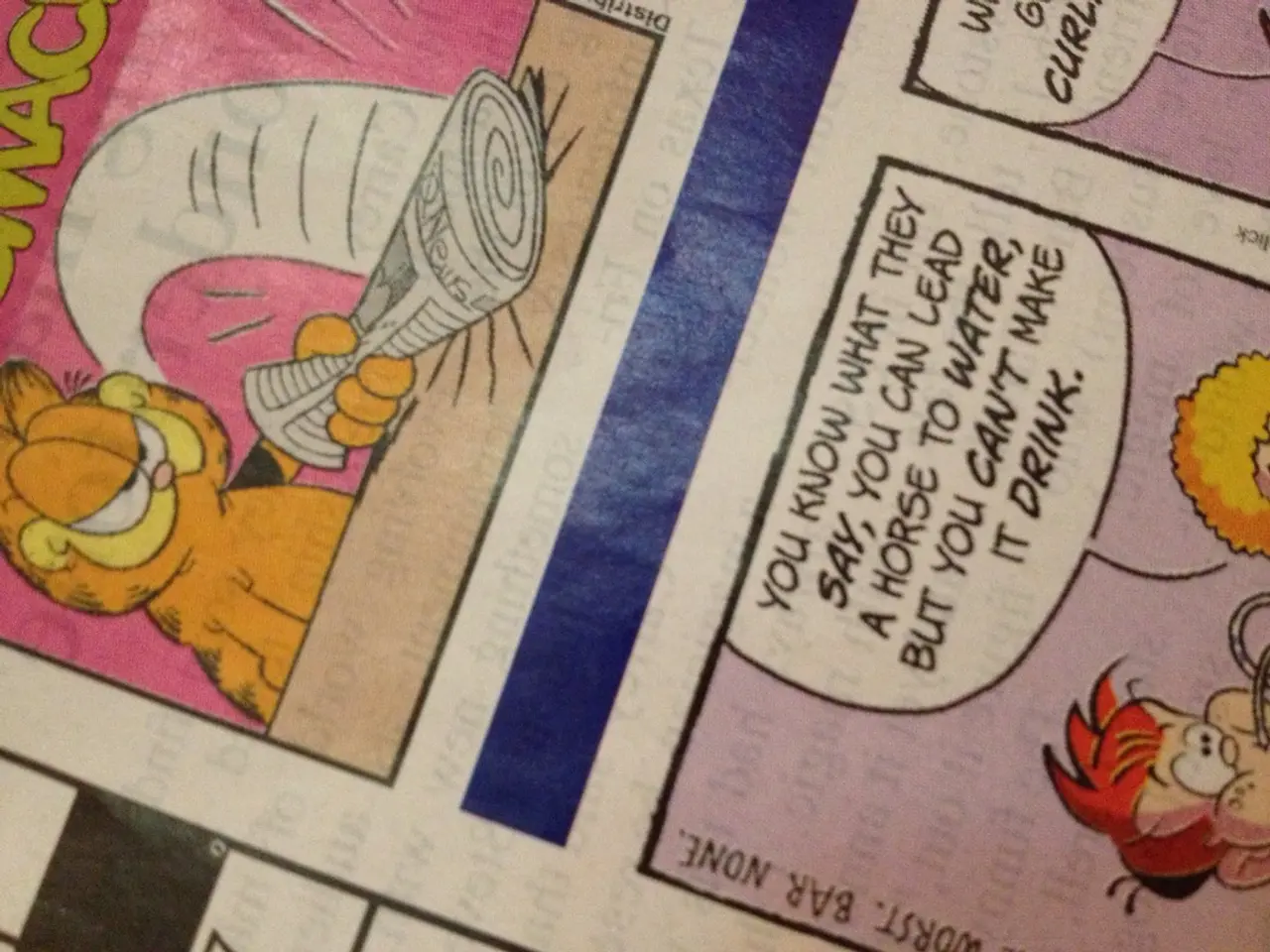Redefining Research by Utilizing Visual Narratives
In the world of academic research, a new approach is gaining traction - videographic criticism. This innovative method, which uses sound and moving images to analyse and critique media texts, is transforming the way scholars approach their work.
Meg Healy, a Ph.D. candidate in English at the College of Arts and Sciences, is one such scholar embracing this change. Her dissertation research delves into the cultural dominance of science fiction across literature and film, a topic she has been examining from various angles.
Healy recently attended the internationally competitive Reframing the Argument workshop held at the University of Notre Dame. This event brings together graduate students and mentors to explore videographic criticism as both a scholarly and creative practice. The hands-on videographic exercises at the workshop revealed elements that Healy had previously overlooked in her chapter focused on the "Star Wars" franchise.
Healy's participation in the workshop encouraged her to move away from traditional text and narration, pushing her beyond her comfort zone and leading to a fresh examination of key areas in her dissertation. She gained proficiency in using editing software and videographic techniques to craft visual arguments and uncover cinematic details in the Star Wars series.
Healy hopes to inspire others in the field to embrace videographic criticism and to keep building connections with fellow content creators and scholars. She believes that this method offers a unique opportunity to convey arguments using sound and image, thereby enriching interpretative frameworks and broadening audience engagement.
The Department of English aims to help redefine what academic research can look-and sound-like, with a focus on embracing new methods like videographic criticism. In fact, the department is planning to make major inroads in this field, with a dedicated class on the subject scheduled for the 2026-27 academic year.
Moreover, the department is continuing to expand its network of collaborators in the field of videographic criticism. Will Scheibel, professor and chair of English, believes that the accessibility of videographic criticism is part of its growing appeal due to recent advancements in technology and distribution platforms like Vimeo and YouTube.
Catherine Grant, an internationally recognised scholar and pioneer in the field of audiovisual essays in film and moving image studies, will also be hosting a workshop this fall at the Department of English. This event promises to further the department's commitment to this innovative approach to academic research.
In conclusion, the emergence of videographic criticism marks a shift toward multimodal, media-sensitive scholarship that revitalises English literary research and theory by leveraging the evidentiary power of video as critical argument rather than mere illustration. This practice challenges conventional boundaries of scholarship by prioritising audiovisual engagement, interdisciplinarity, and creative expression alongside analytical rigor.
- Meg Healy's participation in the Reframing the Argument workshop introduced her to the use of videographic criticism, a method that led her to uncover cinematic details in the Star Wars series and craft visual arguments.
- The Department of English is planning to introduce a dedicated class on videographic criticism for the 2026-27 academic year, aiming to redefine academic research by embracing new methods like this.
- As videographic criticism grows in popularity, thanks to advancements in technology and distribution platforms, the Department of English is expanding its network of collaborators in the field, such as Catherine Grant, an internationally recognised scholar and pioneer in the field of audiovisual essays.




